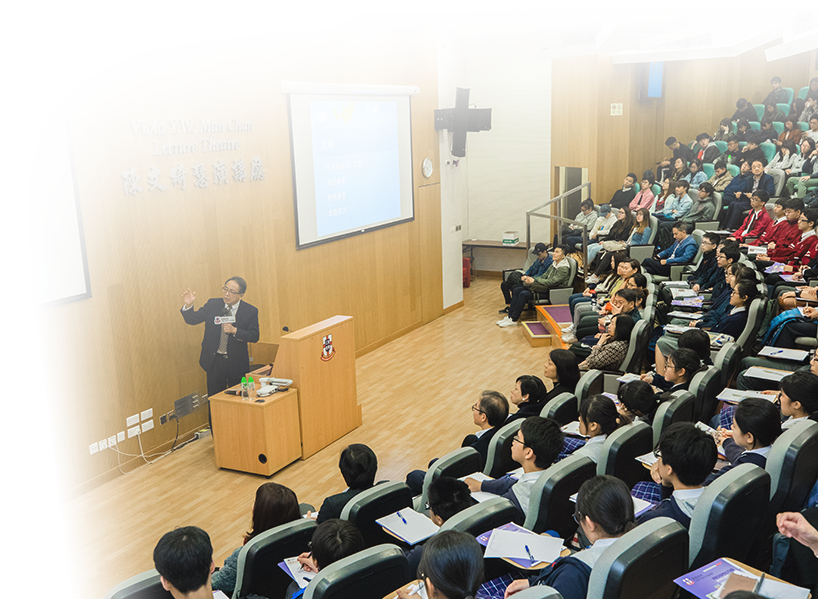About TWC

Admission

Programmes
-
Bachelor’s Degree Programmes
-
Sub Degree ProgrammesDiploma ProgrammeCertificate Programme
-
Mainland Admission

 Administration Units
Administration Units
 News & Events
News & EventsFAQ & Other Information
Frequently Asked Questions for Bachelor of Science (Honours) in PhysiotherapyQ1:What are the special features of the Physiotherapy Programme at TWC?A1:The programme aims to nurture students to become professional physiotherapists with a caring attitude, strong communication and leadership skills, commitment for lifelong learning and an ability to serve the healthcare needs in the community.In addition to lectures, we teach physiotherapy core courses through small group teaching, utilising both specialised laboratories and real clinical settings. Close interaction between teaching staff and students facilitates better student learning outcomes in this demanding programme.
Q2:What is the difference of studying Physiotherapy at Tung Wah College compared to studying the same programme at other local university?A2:Tung Wah College is a self-financing tertiary institution. The teaching staff for this programme are well experienced in both clinical practice and teaching in the Physiotherapy education programme. The BSc(Hons) in Physiotherapy degree programme at the TWC will have equivalent academic merits as other similar degrees from other universities in Hong Kong and around the world. Since the maximum intake each year is 50 students, TWC aims to foster a caring relationship between the teachers and students with more attention to their professional learning and career growth.Q3:If I did not study biology, can I still apply?A3:We would like to admit students who have a genuine understanding and a keen interest to study physiotherapy. For DSE applicants, we consider the DSE scores of best 5 subjects and biology is a highly preferred subject.Q4:Is there any practicum for this programme? If yes, how and when will the practicum be arranged?A4:Students are required to satisfactorily complete a total of 1,085 hours of clinical practicum prior to graduation. Practicum is divided into 6 different blocks spreading over 4 years of study, including summer breaks. Students will be placed in hospital and community settings, and they will be supervised by well qualified clinical educators. The duration of the practicums ranges from 3 weeks to 6 weeks each. There will be opportunities for overseas placement for selected students.Q5:Does the programme involve teaching acupuncture (針灸)?A5:Yes, the concepts and theories about traditional Chinese medicine as well as the commonly used Chinese therapeutic methods are taught, as well as the theory and practice of acupuncture. It is taught in the 4th year of the programme, and there will be a brief practicum for students to enhance their clinical skills in applying acupuncture.Q6:What are the differences between Physiotherapy (PT) and Occupational Therapy (OT)?A6:Both physiotherapists and occupational therapists are part of the health care professional team. Physiotherapists mainly use physical means of assessment and treatment including manual therapy, exercise and electrophysical agents, to restore people’s maximum movement and functional ability.Take the example of a patient who suffers a stroke, the physiotherapist would assess the movements in the limbs and the trunk, and provide treatment to help restore the patient’s ability to move, to stand up and to walk. The occupational therapist may provide assessment and training to the patient in restoring his/her ability to perform activities of daily living, e.g. how to put on his/her clothes.Q7: Is this Physiotherapy programme recognised by the professional registration board in Hong Kong? A7: The programme has received accreditation from the Physiotherapists Board of the Supplementary Medical Professions Council (SMPC) in June 2022. Graduates are eligible to apply for registration as Physiotherapists “物理治療師” for practice in Hong Kong.Q8: What is the career prospect for this programme? A8: Physiotherapists can work in a wide range of places including hospitals and community or non-profit organisation settings such as aged care centres, schools, nursing homes and rehabilitation centres. In addition, physiotherapists can also work in private hospitals and private clinics. They can also start their own clinics and work as self-employed or free-lance therapists to provide service in patients’ homes. Physiotherapists can also work in exercise or fitness centres, and also provide on-field service to sports teams.
PROGRAMMES+ Bachelor’s Degree Programmes- Bachelor of Education (Honours) in Early Childhood Education
- Bachelor of Health Information and Services Management (Honours)
- Bachelor of Health Science (Honours) in Nursing
- Bachelor of Management (Honours) in Social and Business Sustainability
- Bachelor of Science (Honours) in Applied Gerontology
- Bachelor of Science (Honours) in Biomedical Science
- Bachelor of Science (Honours) in Forensic Biomedical Science
- Bachelor of Science (Honours) in Medical Imaging
- Bachelor of Science (Honours) in Medical Laboratory Science
- Bachelor of Science (Honours) in Occupational Therapy
- Bachelor of Science (Honours) in Physiotherapy
- Bachelor of Science (Honours) in Radiation Therapy
- Bachelor of Social Science (Honours) in Applied Psychology
-














